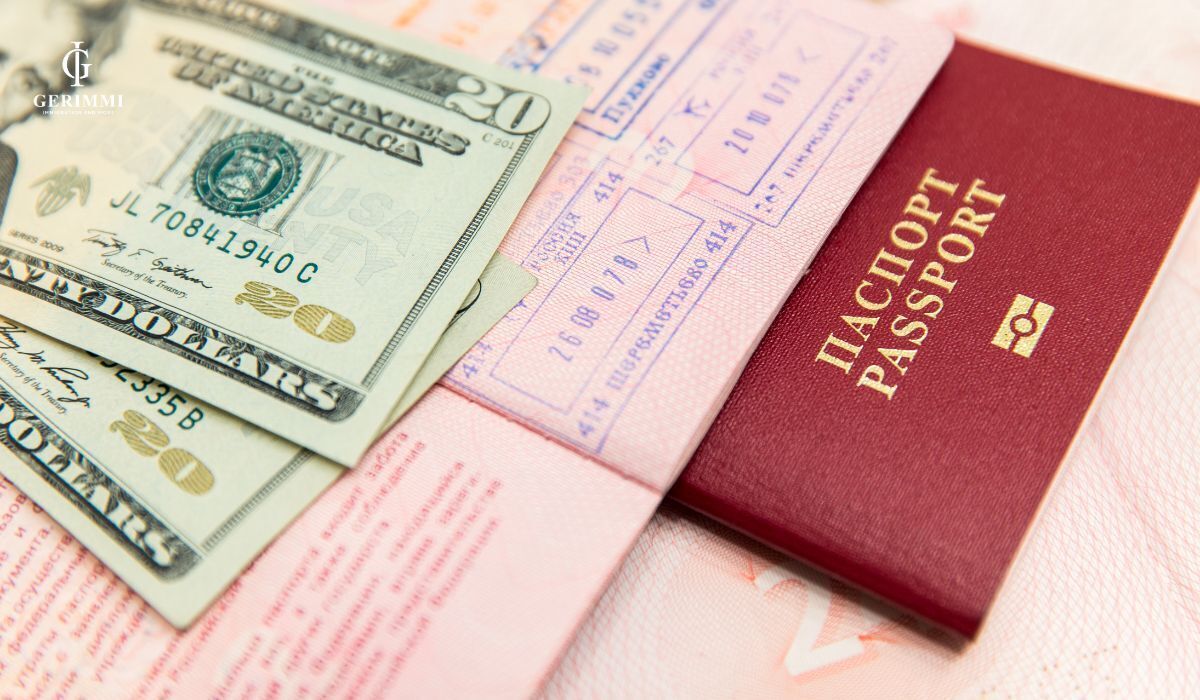In the digital age, more and more young people choose self-study abroad applications instead of using a consulting service. However, handling the entire application yourself also has many potential risks. From writing an unimpressive personal statement (SOP), to errors in financial proof or visa application.
I. Making your own study abroad application: a popular trend today
In recent years,self-study abroad applicationhas become a choice pursued by many young people, especially those who are capable of self-study and want to save money. Forums and groups share experiences, self-funded study abroad increasingly popular, facilitating self-study of schools, writing essays and preparing visa applications.
- The cost of studying abroad is so high that many people do it themselves
With fees ranging from several tens to hundreds of millions of dong at someStudy abroad consulting service, many students choose to prepare their own documents to reduce the financial burden. In particular, some countries such as Germany, Finland or Canada have not too complicated application requirements, suitable for you to do it yourself if you have a clear plan.
- The Internet makes accessing study abroad information easier
With just a few keywords like “free study abroad application” or “how to write SOP for studying abroad”, you can find hundreds of detailed instructions from former international students. Thanks to that, submitting your own application is no longer too difficult for those who actively seek to learn.
- Self-funded study abroad is increasingly popular in Vietnam
More and more Vietnamese students choose self-funded study abroad instead of through exchange programs or full scholarships. This means they need to prepare themselves from A to Z: choosing a school, applying for admission, getting a visa, preparing finances...
- Do it yourself to better understand the study abroad process
Processing each step of your study abroad application yourself will help you understand the requirements of each school and each country, thereby being better prepared for your future study and living journey. This is also a factor that helps you answer better in the student visa interviewSomething that many people who rely entirely on consultants often overlook.

II. Benefits & risks of not using consulting services
Job Do not use study abroad consulting services can offer significant flexibility and savings, but it can also lead to serious errors if you are inexperienced.
- Benefits: Save costs on studying abroad application
This is the most common reason why many people choose self-study abroad applicationInstead of spending money on hiring a processing center, you can take advantage of online resources, instructional videos, SOP templates, and community referral letters to complete your application yourself.
- Benefits: Practice independence & research skills
Making your own application is an opportunity for you to practice your analytical skills, compare study programs, choose the right school, and write academic documents such as SOP for studying abroad essential skills when studying abroad.
- Risk: Easy to make mistakes in financial and visa sections
One of the mistakes when applying for study abroad is to prepare insufficient financial documents or submit visa applications incorrectly. This leads to the risk of visa rejection, causing the study plan to be missed.
- Risk: Not updating new requirements from schools
Admissions and visa policies change constantly. If you don’t keep up with school websites, you could end up submitting incomplete applications, choosing the wrong intake period, or using documents that are no longer accepted.

III. Why you should understand common mistakes
Identifying and preventing the common mistakes when applying for study abroad is vital if you want to succeed on your first try.
- Avoid losing your chance to study abroad
Many students have good academic records but still fail to get scholarships because they do not know how to present their abilities, extracurricular activities or choose the wrong scholarship. Understanding common mistakes will help you increase your scholarship acceptance rate significantly.
- Reduce the risk of student visa rejection
Just a small mistake in financial documents or incorrect information can causestudent visa deniedUnderstanding common mistakes will help you double-check every detail before submitting.
- Optimize application submission time
Submitting too close to the deadline or sending incomplete documents will result in your application being rejected. Knowing the common mistakes in advance will help you prepare earlier and submit on time.
- Increase your chances of passing the first round of admission
Apply with confidence knowing you’ve avoided common mistakes like writing a generic SOP, failing to prepare a cover letter in the correct format, or missing a transcript. Understanding the process puts you in control of the game from the start.

IV. 5 Common mistakes when making your own study abroad application
1. Mistake 1: Not carefully researching the requirements of each school/major
One of the common mistakes when self-study abroad application is not thoroughly researching the entry requirements of each school or course. Each university, especially in countries like Australia, Germany or Canada, has its own criteria for GPA, English proficiency, work experience or portfolio.
Referring only to general information or relying on other people's experiences can easily lead to submitting incomplete or substandard applications, thereby greatly reducing your chances of being considered for admission. To avoid this mistake, you should directly access the school's website, carefully read the "Admission Requirements" section and compare it with your own abilities before submitting.
2. Mistake 2: Incomplete financial records
Financial documents for studying abroad are extremely important, especially if you are applying to countries with strict financial requirements such as the US, Canada or Australia. Many students who prepare their own documents often lack documents such as timely savings books, income confirmation from sponsors, or valid bank statements.
These shortcomings can cause your application to be rejected right from the visa review stage. Therefore, it is necessary to fully prepare financial documents according to the consulate's instructions and update the latest changes from the official website.

3. Mistake 3: Writing a sketchy, unremarkable personal statement (SOP)
A personal essay or SOP for studying abroad (Statement of Purpose) is the “golden key” to help you stand out from thousands of applications. However, many students write their own SOPs in a stereotyped format, with general content, not expressing their study goals, passion for the major or reasons for choosing the school.
A poor SOP not only makes you lose points with the admissions board but also affects your chances of getting a scholarship to study abroad. To write an effective SOP, you need to invest time in learning the standard format, carefully outlining and writing in a coherent, clearly personalized style.
4. Mistake 4: Lack of strategy for hunting for scholarships or applying for financial aid
Many students focus on applying for university and ignore the opportunity to hunt for scholarships or financial aid, things that can help save tens of thousands of dollars. When applying yourself, you need to proactively search for suitable scholarships: from government scholarships, school-specific scholarships to support specifically for international students.
In addition, not knowing how to prepare scholarship documents such as recommendation letters, personal essays or interviews can also cause you to miss out on opportunities. A well-planned scholarship strategy should be planned in parallel with the school selection process.

5. Mistake 5: Subjectivity in visa application
After being accepted to school, many students think that everything is done, so they are often subjective when applying for a student visa. This is an extremely dangerous mistake because each country has its own visa process, requiring high accuracy and sometimes even a direct interview.
Submitting the wrong form, missing documents or not clearly demonstrating the purpose of studying abroad can result in a visa rejection, even if you have been issued an invitation to study. In addition, visa processing time also varies depending on the season, so you need to submit your application early and closely monitor the processing progress to promptly supplement if required.
V. Frequently asked questions when applying for study abroad yourself
- Is it difficult to apply for studying abroad yourself?
Job self-study abroad applicationIt is not too difficult, but it requires you to actively research information, make a clear plan and be able to handle issues such as choosing a school, writing SOP, submitting applications on time. For those who have good English skills and are familiar with finding academic information, doing your own application can save time and money.
- Should I use a study abroad consulting service or do it myself?
If you are confident in your English level, understand the process well and have time to prepare well, doing it yourself is a reasonable choice. On the contrary, if you need someone to guide you step by step from choosing a major, writing SOP to applying for a visa, finding a reputable consulting unit will help save time and increase the rate of passing the scholarship and visa.
- When preparing your own study abroad application, where should you start?
Make a list of admission requirements such as GPA, IELTS/TOEFL, portfolio (if applicable), and application deadlines. Next, prepare the necessary documents: transcripts, degrees, personal statement (SOP), letters of recommendation (LOR), and financial documents.
- Can I apply for a scholarship myself without going through the center?
Apply for a scholarship to study abroadIt is completely possible if you have a good academic record and know how to find suitable scholarship information. Many universities now publicly announce financial aid programs, full or partial scholarships for international students right on their official websites.
- Is it difficult to prove financial resources when applying for a visa?
Proof of financial resources for studying abroad is one of the most difficult steps if you apply for a self-funded study abroad visa. To be granted a visa, you need to prove that you have enough money to pay for tuition and living expenses during your time studying abroad.
Conclusion
Job self-study abroad applicationIt can be a challenging journey, but if you avoid the common mistakes listed above, your chances of success will increase significantly. Take the time to research each step carefully, prepare your application carefully, and don’t hesitate to ask for help if needed.

